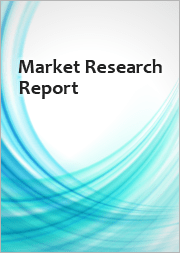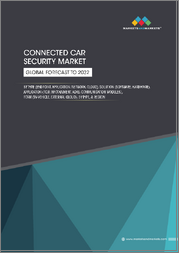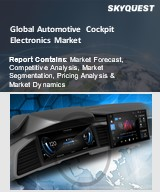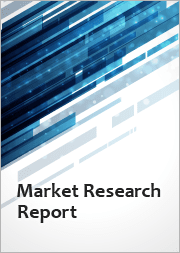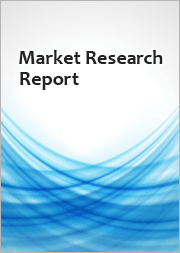
|
시장보고서
상품코드
1797801
소 사육 장비 시장 기회, 성장 촉진요인, 산업 동향 분석 및 예측(2025-2034년)Cattle Rearing Equipment Market Opportunity, Growth Drivers, Industry Trend Analysis, and Forecast 2025 - 2034 |
||||||
세계의 소 사육 장비 시장 규모는 2024년에 98억 달러로 평가되었고, CAGR 5.7%를 나타내 2034년에는 167억 달러에 달할 것으로 추정되고 있습니다.
이 성장은 특히 아시아, 라틴아메리카, 아프리카의 신흥 경제 국가에서 유제품 및 고기 제품의 세계 소비 증가로 촉진됩니다. 인구가 증가하고 소득이 증가함에 따라 우유, 쇠고기, 치즈, 요구르트에 대한 수요가 증가하고 있으며 모든 규모의 농장에서 경영의 현대화를 촉진하고 있습니다. 축산업자는 더 나은 생산성, 더 건강한 가축, 안정적인 제품 품질을 보장하기 위해 고급 시스템을 도입하고 있습니다. 공기조화된 축사, 자동급식기, 분뇨관리시스템 등의 설비는 이제 필수적입니다.

생산자는 국제 식품 안전 기준을 충족하고 추적 성, 위생 및 효율성을 유지해야합니다. 소비자의 기호가 고급 축산물로 이동하는 동안 동물 복지를 지원하고 노동력을 줄이고 수확량을 향상시키는 장비는 강한 수요가 있습니다. 제조업체 각 회사는 진화하는 가축 관리의 요구와 지속가능성 목표를 지원하기 위해 지능적이고 확장 가능하며 에너지 효율적인 기술을 제공합니다. 수출 지향의 낙농·육류 생산자는 세계 시장에서 경쟁력을 유지하기 위해 표준화된 고성능 장비에 특히 투자하고 있습니다.
| 시장 범위 | |
|---|---|
| 시작 연도 | 2024년 |
| 예측 연도 | 2025-2034년 |
| 시작 금액 | 98억 달러 |
| 예측 금액 | 167억 달러 |
| CAGR | 5.7% |
착유 장비 부문은 2024년에 32억 달러를 창출했고 2034년까지 연평균 복합 성장률(CAGR)은 6.2%를 나타낼 것으로 예측됩니다. 위생 우려와 시간적 제약으로 인해 수동 착유가 수행되기 어려워짐에 따라 반자동 및 전자동 착유 솔루션의 채택이 증가하고 있습니다. 이 시스템은 균일한 우유 생산, 유방 건강 상태 개선, 효율적인 우유 처리를 가능하게 하며 높은 처리 능력과 품질 관리를 모두 요구하는 대규모 낙농 경영에 이상적입니다.
양돈장 부문은 2024년에 42.2%의 점유율을 차지했고 2025년부터 2034년에 걸쳐 CAGR 6.2%를 나타낼 것으로 예측됩니다. 축산 농장이 전통적으로 시장을 선도해 왔지만, 바이오 시큐리티, 급이의 자동화, 공조 관리된 주택등의 진보에 의해 양돈이 견인역이 되고 있습니다. 현대 돼지 사업은 대규모 집약 농업을 지원하기 위해 하이테크 폐기물 처리 및 가축 관리 도구가 필요합니다. 생산성, 동물의 건강, 질병 예방에 대한 주목이 높아짐에 따라, 양돈에 있어서의 장비의 혁신이 중요한 시장 성장 촉진요인이 되고 있습니다.
미국의 소 사육 장비 시장은 56.5%의 점유율을 차지하며 2024년에는 18억 달러를 창출했습니다. 이 리더십은 이 나라의 성숙한 축산 부문에 기인하고 있으며, 그곳에서는 선진적인 낙농과 육우의 사육이 상식이 되고 있습니다. 캘리포니아, 위스콘신, 텍사스와 같은 주에는 자동화, IoT 지원 시스템 및 고급 취급 장비에 많은 투자를 수행하는 대용량 상업 농장이 있습니다. 지원 인프라, 자본 접근, 정부 보조금은 미국에서 현대적인 축우 사육 기술의 채택을 더욱 촉진하고 있습니다. 미국은 효율성과 동물복지에 중점을 두고 있기 때문에 차세대 축산 솔루션의 주요 채용국으로 남아 있습니다.
세계의 소 사육 장비 시장에서 주요 산업 선수로는 BouMatic LLC, Afimilk Ltd, GEA Group AG, AGCO Corporation, DeLaval International AB 등이 있습니다. 소 사육 장비 시장 주요 기업은 경쟁력을 유지하기 위해 지속적인 제품 혁신과 기술 통합에 주력하고 있습니다. AGCO Corporation 및 DeLaval International AB와 같은 개발 기업은 정밀 축산을 지원하는 자동화된 지능형 시스템을 개발하고 있습니다. 연구개발에 대한 투자는 동물의 건강과 생산성을 높이는 센서 기반의 먹이, 착유, 모니터링 기술의 도입을 촉진하고 있습니다. 각 회사는 또한 소규모 농장에서 대규모 농장까지 확장 가능한 솔루션을 제공하기 위해 제품 라인을 확대하고 있습니다. 현지 유통업체와의 제휴, 애프터서비스 확대, 낙농가용 연수 프로그램은 신흥지역의 도입 확대에 도움이 되고 있습니다.
목차
제1장 조사 방법과 범위
제2장 주요 요약
제3장 업계 인사이트
- 생태계 분석
- 공급자의 상황
- 이익률
- 각 단계에서의 부가가치
- 밸류체인에 영향을 주는 요인
- 업계에 미치는 영향요인
- 성장 촉진요인
- 유제품과 육제품의 세계 수요 증가
- 축산에 있어서의 기계화와 자동화
- 동물의 건강과 복지에 중점
- 업계의 잠재적 위험 및 과제
- 높은 초기 투자 비용
- 낮은 의식과 트레이닝의 갭
- 기회
- 성장 촉진요인
- 성장 가능성 분석
- 향후 시장 동향
- 기술과 혁신의 상황
- 현재의 기술 동향
- 신흥기술
- 가격 동향
- 지역별
- 제품별
- 규제 상황
- 표준 및 컴플라이언스 요건
- 지역 규제 틀
- 인증기준
- 무역 통계(HS코드-84361000)
- 주요 수입국
- 주요 수출국
- Porter's Five Forces 분석
- PESTEL 분석
제4장 경쟁 구도
- 서론
- 기업의 시장 점유율 분석
- 지역별
- 기업 매트릭스 분석
- 주요 시장 기업의 경쟁 분석
- 경쟁 포지셔닝 매트릭스
- 주요 발전
- 합병과 인수
- 파트너십 및 협업
- 신제품 발매
- 확장 계획
제5장 시장 추계·예측 : 장비 유형별(2021-2034년)
- 주요 동향
- 급이 장비
- 자동 피더
- 사일리지 커터 및 믹서
- 트로프 및 건초 랙
- 급수 시스템
- 자동급수기
- 수조
- 파이프라인 및 펌프
- 주택 및 쉼터
- 소 창고
- 환기 시스템
- 냉난방 시스템
- 착유 장비
- 유축기(수동 또는 자동)
- 우유 저장 탱크
- 젖꼭지 세척 장치
- 핸들링 및 제지 도구
- 소 분쇄기/슈트
- 헤드 게이트
- 로딩 램프
- 계량용 스케일
- 건강 및 위생
- 소독 장치
- 발굽 트리밍 스탠드
- 예방 접종 및 인식표 도구
- 비료 관리
- 스크레이퍼
- 슬러리 펌프
- 퇴비 분뇨 살포기
제6장 시장 추계·예측 : 농장 규모별(2021-2034년)
- 주요 동향
- 소규모 농장
- 중규모 농장
- 대규모 농장
제7장 시장 추계·예측 : 용도별(2021-2034년)
- 주요 동향
- 젖소 사육
- 육우 사육
- 번식 사업
제8장 시장 추계·예측 : 최종 용도별(2021-2034년)
- 주요 동향
- 양계장
- 낙농장
- 양돈장
- 기타
제9장 시장 추계·예측 : 유통 채널별(2021-2034년)
- 주요 동향
- 온라인
- 오프라인
제10장 시장 추계·예측 : 지역별(2021-2034년)
- 주요 동향
- 북미
- 미국
- 캐나다
- 유럽
- 영국
- 독일
- 프랑스
- 이탈리아
- 스페인
- 러시아
- 아시아태평양
- 중국
- 인도
- 일본
- 호주
- 한국
- 라틴아메리카
- 브라질
- 멕시코
- 중동 및 아프리카
- 아랍에미리트(UAE)
- 남아프리카
- 사우디아라비아
제11장 기업 프로파일
- Afimilk Ltd
- AGCO
- Bob-White Systems
- BouMatic LLC
- Case IH
- DeLaval International AB
- FarmTek
- GEA Group AG
- Jaylor Fabricating Inc.
- Lely Holding SARL
- Murray Farm Care Ltd.
- Pearson International LLC
- Priefert Manufacturing Co., Inc.
- Real Tuff Livestock Equipment
- Royal Livestock Farms
The Global Cattle Rearing Equipment Market was valued at USD 9.8 billion in 2024 and is estimated to grow at a CAGR of 5.7% to reach USD 16.7 billion by 2034. This growth is being fueled by increasing global consumption of dairy and meat products, particularly in developing economies across Asia, Latin America, and Africa. As populations grow and incomes rise, demand for milk, beef, cheese, and yogurt continues to climb, prompting farms of all sizes to modernize their operations. Livestock producers are embracing advanced systems to ensure better productivity, healthier animals, and consistent product quality. Equipment such as climate-controlled housing, automated feeders, and manure management systems is now essential.
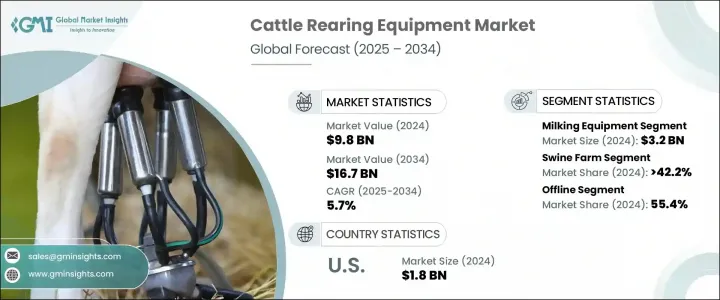
Producers are under pressure to meet international food safety standards and maintain traceability, hygiene, and efficiency in their operations. As consumer preferences shift toward premium animal products, equipment that supports animal welfare, reduces labor, and enhances yield is seeing strong demand. Innovation is key in this space, with manufacturers offering intelligent, scalable, and energy-efficient technologies to support evolving livestock management needs and sustainability goals. Export-oriented dairy and meat producers are particularly investing in standardized, high-performance equipment to remain competitive in global markets.
| Market Scope | |
|---|---|
| Start Year | 2024 |
| Forecast Year | 2025-2034 |
| Start Value | $9.8 Billion |
| Forecast Value | $16.7 Billion |
| CAGR | 5.7% |
The milking equipment segment generated USD 3.2 billion in 2024 and is expected to witness a CAGR of 6.2% through 2034. As manual milking becomes less feasible due to hygiene concerns and time constraints, the adoption of semi-automated and fully automated milking solutions is growing. These systems offer uniform milk production, improved udder health, and efficient milk handling-making them ideal for large-scale dairy operations that require both high throughput and quality control.
The swine farm segment held a 42.2% share in 2024 and is projected to grow at a CAGR of 6.2% during 2025-2034. While cattle farms have traditionally led the market, pig farming is now gaining traction thanks to advancements in biosecurity, feeding automation, and climate-controlled housing. Modern swine operations demand high-tech waste handling and livestock management tools to support intensive farming at scale. The increased focus on productivity, animal health, and disease prevention has made equipment innovation in pig farming a critical market driver.
U.S. Cattle Rearing Equipment Market held 56.5% share and generated USD 1.8 billion in 2024. This leadership stems from the country's mature livestock sector, where advanced dairy and beef farming practices are the norm. States such as California, Wisconsin, and Texas are home to high-capacity commercial farms that heavily invest in automation, IoT-enabled systems, and advanced handling equipment. Supportive infrastructure, access to capital, and government subsidies further promote the adoption of modern cattle rearing technologies across the country. The U.S. continues to be a major adopter of next-generation livestock solutions due to its focus on efficiency and animal welfare.
Key industry players in the Global Cattle Rearing Equipment Market include BouMatic LLC, Afimilk Ltd, GEA Group AG, AGCO Corporation, and DeLaval International AB. Leading companies in the cattle rearing equipment market are focusing on continuous product innovation and technology integration to maintain their competitive edge. Manufacturers such as AGCO Corporation and DeLaval International AB are developing automated and intelligent systems that support precision livestock farming. Investments in R&D are driving the introduction of sensor-based feeding, milking, and monitoring technologies to enhance animal health and productivity. Firms are also expanding their product lines to offer scalable solutions for both small and large farms. Partnerships with local distributors, after-sales service expansion, and training programs for farmers are helping increase adoption in emerging regions.
Table of Contents
Chapter 1 Methodology and Scope
- 1.1 Market scope and definition
- 1.2 Research design
- 1.2.1 Research approach
- 1.3 Data collection methods
- 1.4 Data mining sources
- 1.4.1 Global
- 1.4.2 Regional/Country
- 1.5 Base estimates and calculations
- 1.5.1 Base year calculation
- 1.5.2 Key trends for market estimation
- 1.6 Primary research and validation
- 1.6.1 Primary sources
- 1.7 Forecast model.
- 1.8 Research assumptions and limitations!
Chapter 2 Executive Summary
- 2.1 Industry 3600 synopsis
- 2.2 Key market trends
- 2.2.1 Regional
- 2.2.2 Equipment type
- 2.2.3 Farm size
- 2.2.4 Application
- 2.2.5 End use
- 2.2.6 Distribution channel
- 2.3 CXO perspectives: Strategic imperatives
- 2.3.1 Key decision points for industry executives
- 2.4 Critical success factors for market players
- 2.5 Future outlook and strategic recommendations
Chapter 3 Industry Insights
- 3.1 Industry ecosystem analysis
- 3.1.1 Supplier landscape
- 3.1.2 Profit margin
- 3.1.3 Value addition at each stage
- 3.1.4 Factor affecting the value chain.
- 3.2 Industry impact forces
- 3.2.1 Growth drivers
- 3.2.1.1 Rising global demand for dairy and meat products
- 3.2.1.2 Mechanization and automation in livestock farming
- 3.2.1.3 Focus on animal health and welfare.
- 3.2.2 Industry pitfalls & challenges
- 3.2.2.1 High initial investment costs
- 3.2.2.2 Low awareness and training gaps
- 3.2.3 Opportunities
- 3.2.1 Growth drivers
- 3.3 Growth potential analysis
- 3.4 Future market trends
- 3.5 Technology and innovation landscape
- 3.5.1 Current technological trends
- 3.5.2 Emerging technologies
- 3.6 Price trends
- 3.6.1 By region
- 3.6.2 By product
- 3.7 Regulatory landscape
- 3.7.1 standards and compliance requirements
- 3.7.2 Regional regulatory frameworks
- 3.7.3 Certification standards
- 3.8 Trade statistics (HS code -84361000)
- 3.8.1 Major importing countries
- 3.8.2 Major exporting countries
- 3.9 Porter's analysis
- 3.10 PESTEL analysis
Chapter 4 Competitive Landscape, 2024
- 4.1 Introduction
- 4.2 Company market share analysis
- 4.2.1 By region
- 4.2.1.1 North America
- 4.2.1.2 Europe
- 4.2.1.3 Asia Pacific
- 4.2.1.4 Latin America
- 4.2.1.5 Middle East and Africa
- 4.2.1 By region
- 4.3 Company matrix analysis
- 4.4 Competitive analysis of major market players
- 4.5 Competitive positioning matrix
- 4.6 Key developments
- 4.6.1 Mergers & acquisitions
- 4.6.2 Partnerships & collaborations
- 4.6.3 New product launches
- 4.6.4 Expansion plans
Chapter 5 Market Estimates & Forecast, By Equipment Type, 2021 - 2034 ($ Bn, Units)
- 5.1 Key trends
- 5.2 Feeding equipment
- 5.2.1 Automatic feeders
- 5.2.2 Silage cutters and mixers
- 5.2.3 Troughs and hay racks
- 5.3 Watering systems
- 5.3.1 Automatic waterers
- 5.3.2 Water troughs
- 5.3.3 Pipelines and pumps
- 5.4 Housing & sheltering
- 5.4.1 Cow sheds
- 5.4.2 Ventilation systems
- 5.4.3 Cooling/heating systems
- 5.5 Milking equipment
- 5.5.1 Milking machines (manual or automated)
- 5.5.2 Milk storage tanks.
- 5.5.3 Teat cleaning devices
- 5.6 Handling & restraining tools
- 5.6.1 Cattle crushes/chutes
- 5.6.2 Head gates
- 5.6.3 Loading ramps
- 5.6.4 Scales for weighing
- 5.7 Health & hygiene
- 5.7.1 Disinfection units
- 5.7.2 Hoof trimming stands.
- 5.7.3 Vaccination and tagging tools.
- 5.8 Manure management
- 5.8.1 Scrapers
- 5.8.2 Slurry pumps
- 5.8.3 Composters or manure spreaders
Chapter 6 Market Estimates & Forecast, By Farm Size, 2021 - 2034 ($ Bn, Units)
- 6.1 Key trends
- 6.2 Small-scale farms
- 6.3 Medium-scale farms
- 6.4 Large-scale farms
Chapter 7 Market Estimates & Forecast, By Application, 2021 - 2034 ($ Bn, Units)
- 7.1 Key trends
- 7.2 Dairy cattle farming
- 7.3 Beef cattle farming.
- 7.4 Breeding operations
Chapter 8 Market Estimates & Forecast, By End use, 2021 - 2034 ($ Bn, Units)
- 8.1 Key trends
- 8.2 Poultry farm
- 8.3 Dairy farm
- 8.4 Swine farm
- 8.5 Others
Chapter 9 Market Estimates & Forecast, By Distribution Channel, 2021 - 2034 ($ Bn, Units)
- 9.1 Key trends
- 9.2 Online
- 9.3 Offline
Chapter 10 Market Estimates & Forecast, By Region, 2021 - 2034 ($ Bn, Units)
- 10.1 Key trends
- 10.2 North America
- 10.2.1 U.S.
- 10.2.2 Canada
- 10.3 Europe
- 10.3.1 UK
- 10.3.2 Germany
- 10.3.3 France
- 10.3.4 Italy
- 10.3.5 Spain
- 10.3.6 Russia
- 10.4 Asia Pacific
- 10.4.1 China
- 10.4.2 India
- 10.4.3 Japan
- 10.4.4 Australia
- 10.4.5 South Korea
- 10.5 Latin America
- 10.5.1 Brazil
- 10.5.2 Mexico
- 10.6 MEA
- 10.6.1 UAE
- 10.6.2 South Africa
- 10.6.3 Saudi Arabia
Chapter 11 Company Profiles
- 11.1 Afimilk Ltd
- 11.2 AGCO
- 11.3 Bob-White Systems
- 11.4 BouMatic LLC
- 11.5 Case IH
- 11.6 DeLaval International AB
- 11.7 FarmTek
- 11.8 GEA Group AG
- 11.9 Jaylor Fabricating Inc.
- 11.10 Lely Holding S.A.R.L.
- 11.11 Murray Farm Care Ltd.
- 11.12 Pearson International LLC
- 11.13 Priefert Manufacturing Co., Inc.
- 11.14 Real Tuff Livestock Equipment
- 11.15 Royal Livestock Farms






